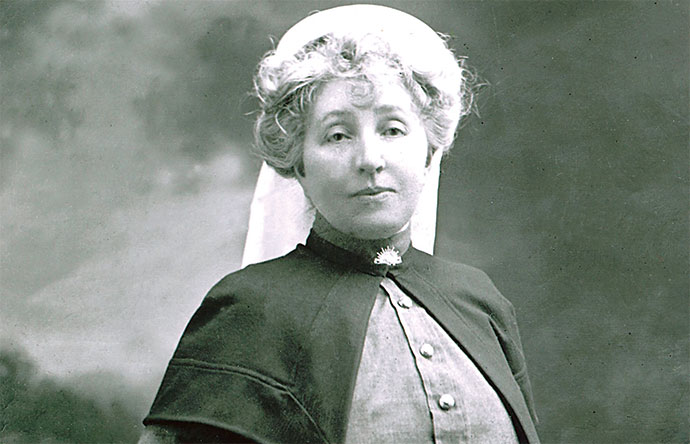Penrith was at the heart of many strong women who played an integral part in World War One by aiding the wounded on the ground and on the sea.
In 1914, 35-year-old Adelaide Maude Kellett left her family and friends in Penrith and joined the Australian Army Nursing Service voluntarily, and by September that year had joined the Australian Imperial Forces as a Sister.
One month later, Sister Kellett was chosen to go abroad with the First Expedition Force and head to an “unknown destination” serving in a role she believed she was fortunate to have.
In her own accounts, Kellett described the fleet of 44 ships she travelled with as a grand sight, as they arranged in three straight lines and were supported by four battleships.
Kellett experienced days of calm on the ship, where she would treat patients that suffered pneumonia and appendicitis just as comfortably as she would in an operation room on land. However, she said at night nurses struggled to work with a precautionary “lights out” rule that was in place across the ships.
In November, one of the accompanying battleships, the HMAS Sydney was called out to fight the Imperial German Navy’s SMS Emden that aimed to raid the Cocos Islands.
Kellett described excitement in the air as ships signalled to each other updates on the battle, and with the sound of “God Save the King”, they knew the Emden was defeated.
This battle took patients’ lives that the nurses couldn’t save, and Kellett witnessed her first sea burial which she said was “much more impressive” than burying on land.
Full lights were allowed on the ships now the Emden was destroyed, making it easier for nurses to work on patients who had suffered through an epidemic of Ptomaine poisoning as they crossed the Indian Ocean.
It was not until their fleet reached Aden, Yemen in December 1914, that the nurses had any idea where they were going and were excited to hear they were to disembark at Alexandria, Egypt.
Sister Kellet was in charge of the operating theatre at the No. 2 Australian General Hospital that was set up at Mena House in Cairo until September 1915, and then was appointed to the Gascon, a hospital ship that transported wounded soldiers from Gallipoli, Turkey to Lemnos, Greece.
Kellett said the view of ANZAC Cove from the ship’s deck was “indeed a most picturesque of sight and one could hardly realise what a deadly inferno it was, until the guns began to talk”.
She said as one of the night Sisters, her patients arrived in barges around 6pm and she would treat them into the darkness.
“My cases were all walkers and were accommodated on the deck, thus I had a good view of that night’s military operations,” she wrote.
Kellett’s naivety and innocence as a nurse led her to see beauty in the star shell projectiles that would soar across the sky, as they would burst and float mid-air in greens and reds and white – not realising until later that they were war signals.
She feared the firing and said she was relieved to see so few wounded when the barges arrived the next morning.
“The poor boys, no matter what their wound of illness was, felt, once they reached the ship, their troubles were ended,” she wrote.
“Their gratitude for the little you would do for them was simply wonderful, and their great patience was an object lesson to us all.”
In 1916, The Nepean Times updated the community on Kellett’s achievements and extended a congratulation to her for being awarded the Royal Red Cross.
“[The award to Ms Kellett is] extremely pleasing to the public of Penrith, as Matron Kellett is a native of the town, and in her girlhood attended the Penrith Superior Public School,” it reported.
It took two months of travel for Kellett to return from service, arriving in Sydney in October 1919. She continued her nursing career as Matron of Sydney Hospital until 1944. Kellett died in April 1945, and her name is on Penrith’s St Stephen’s Anglican Church memorial.

